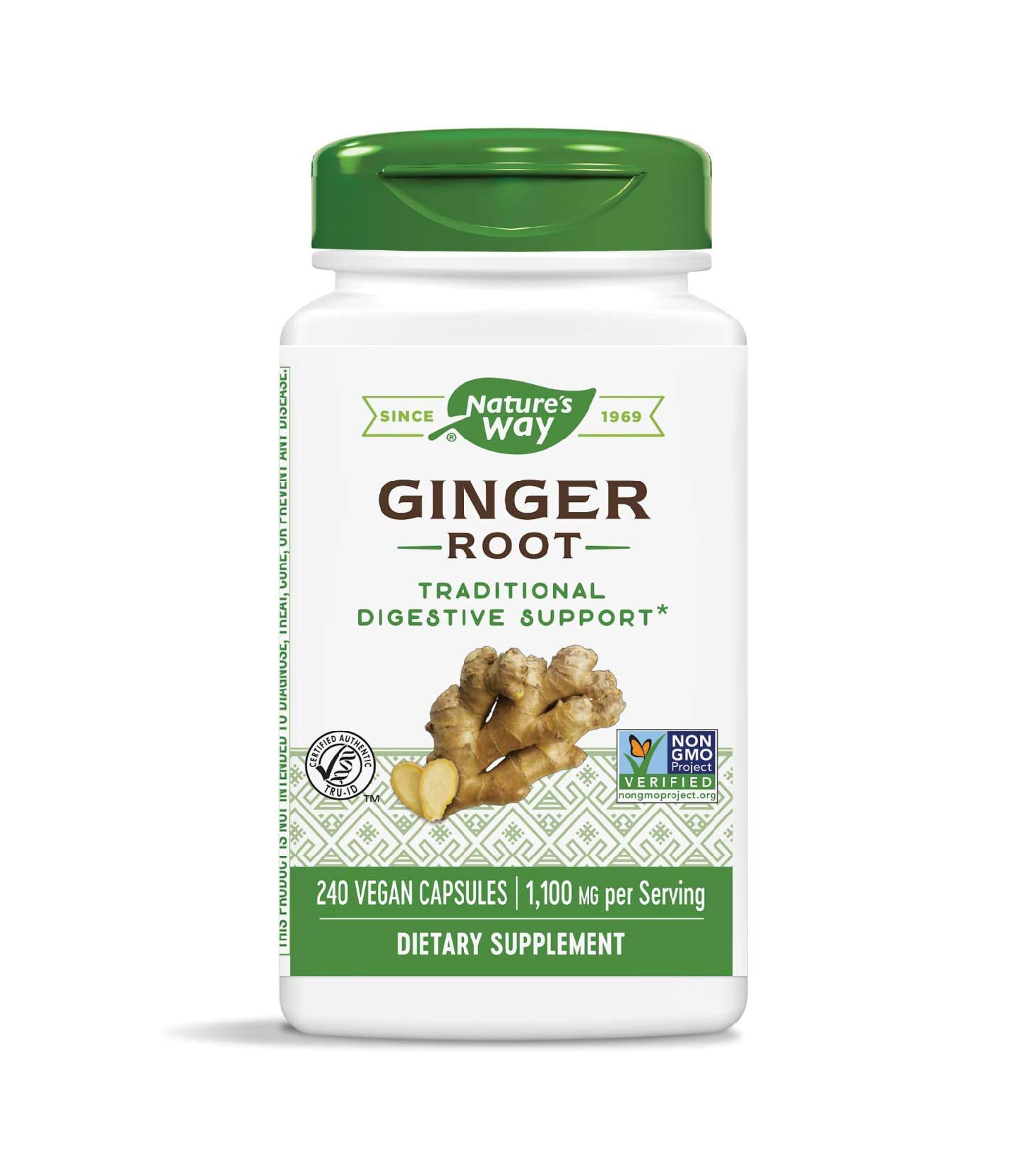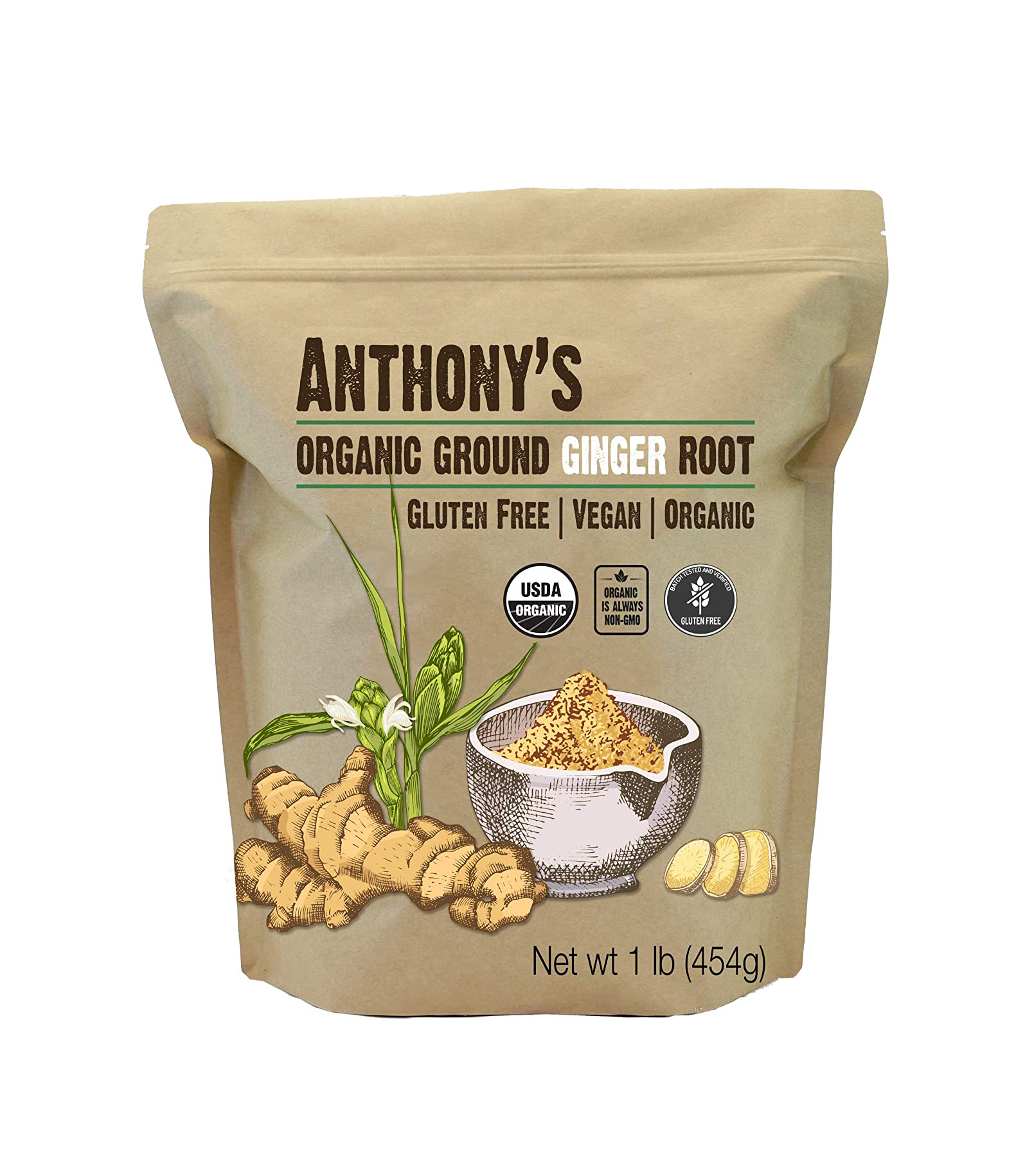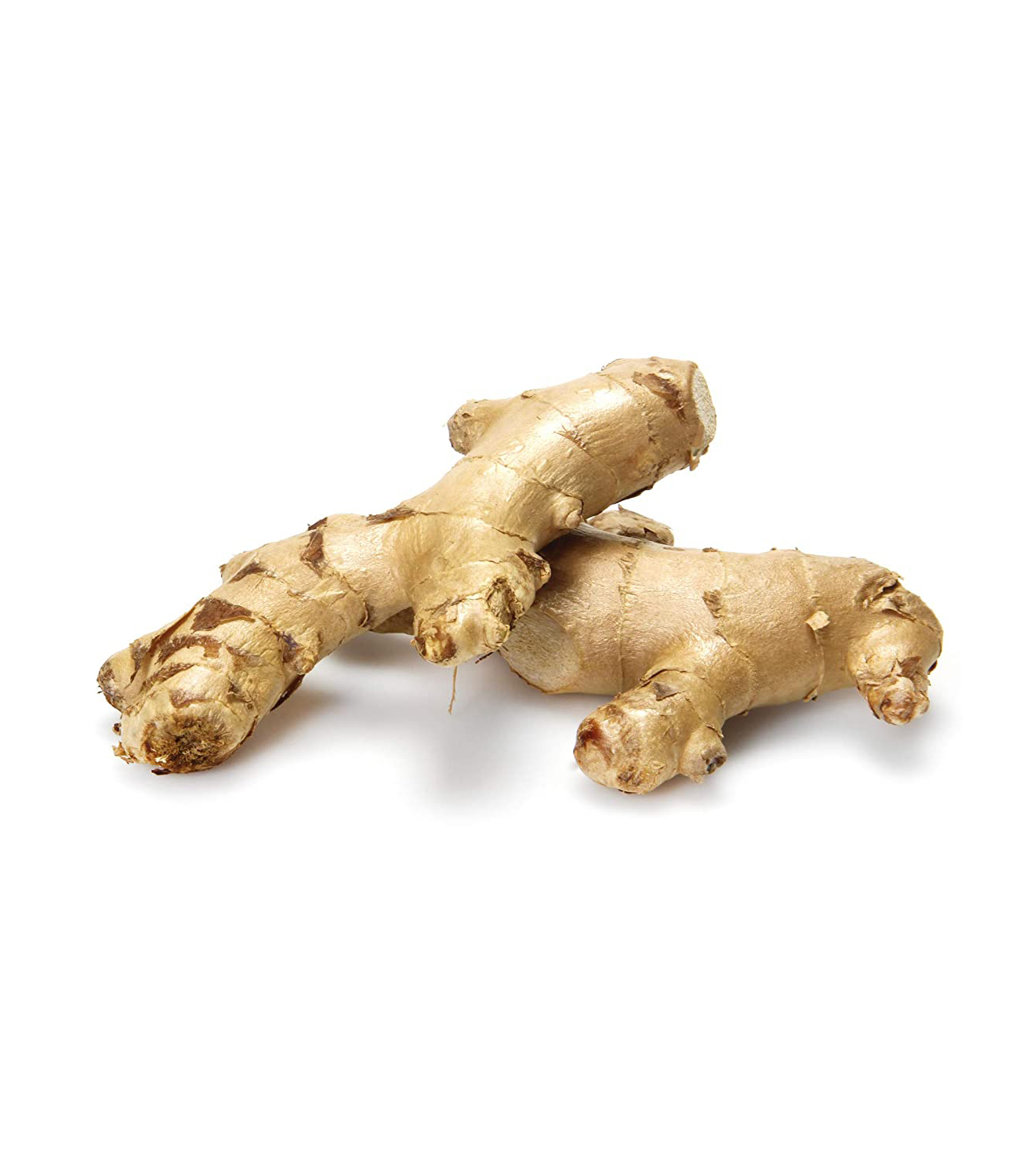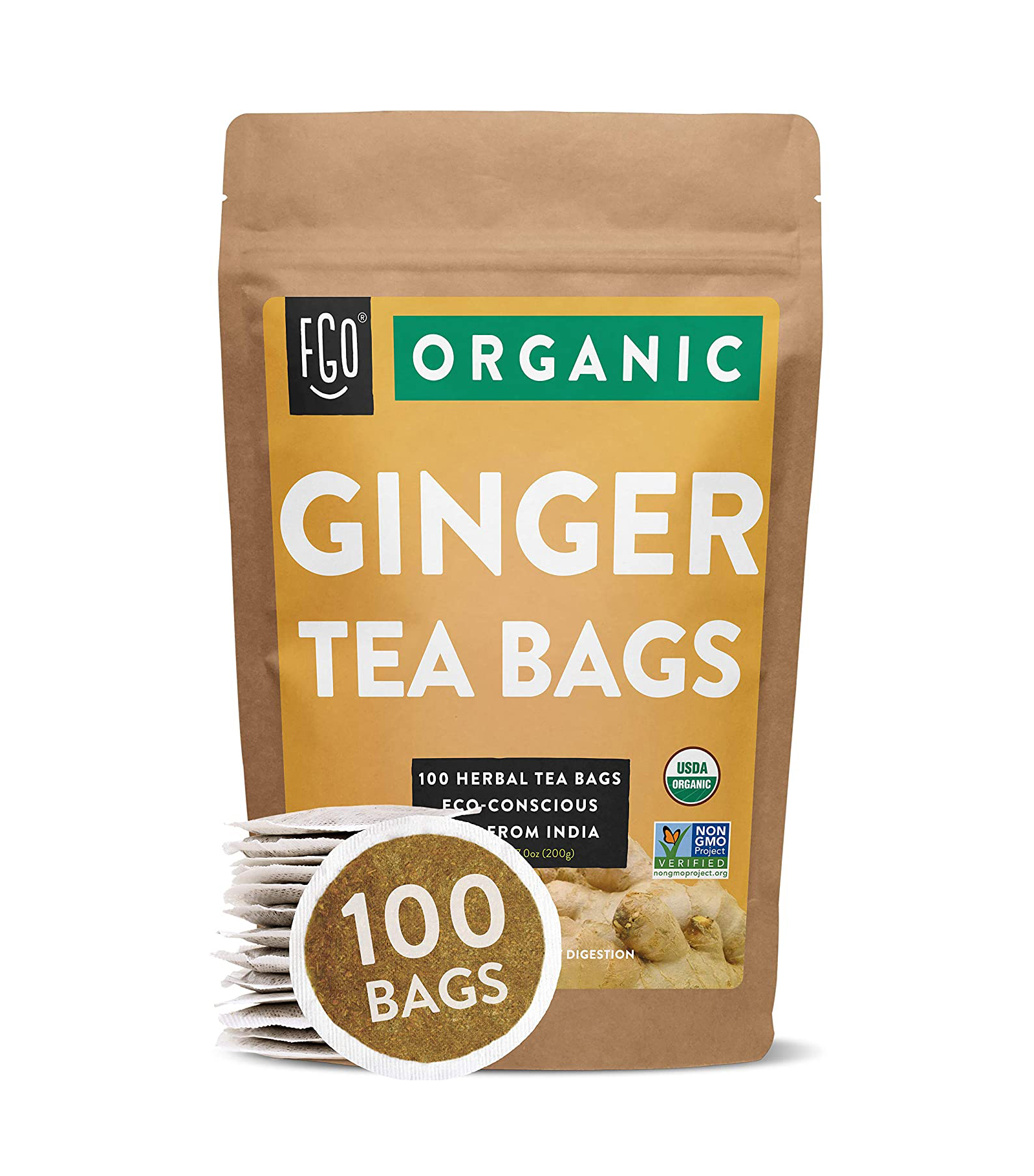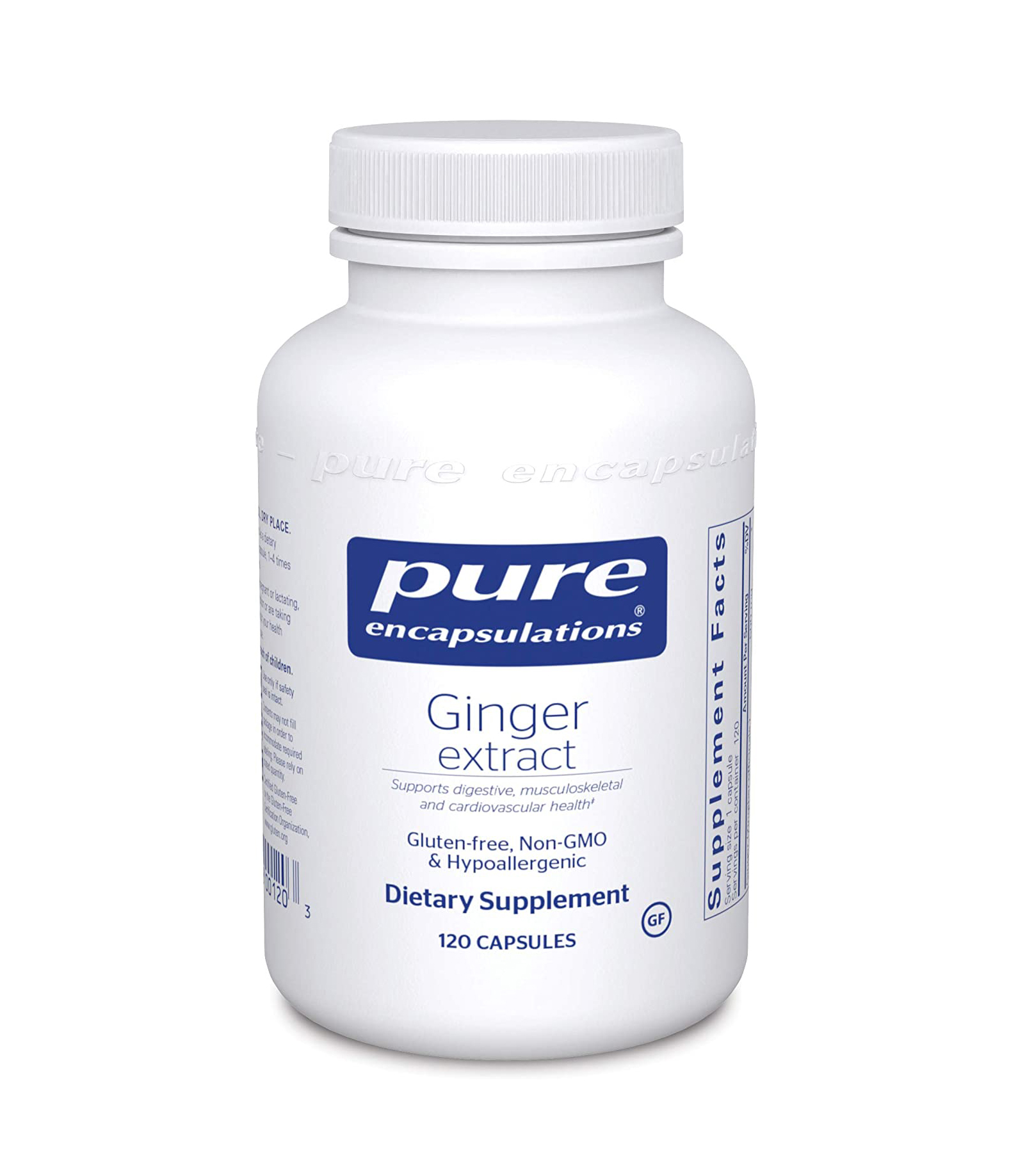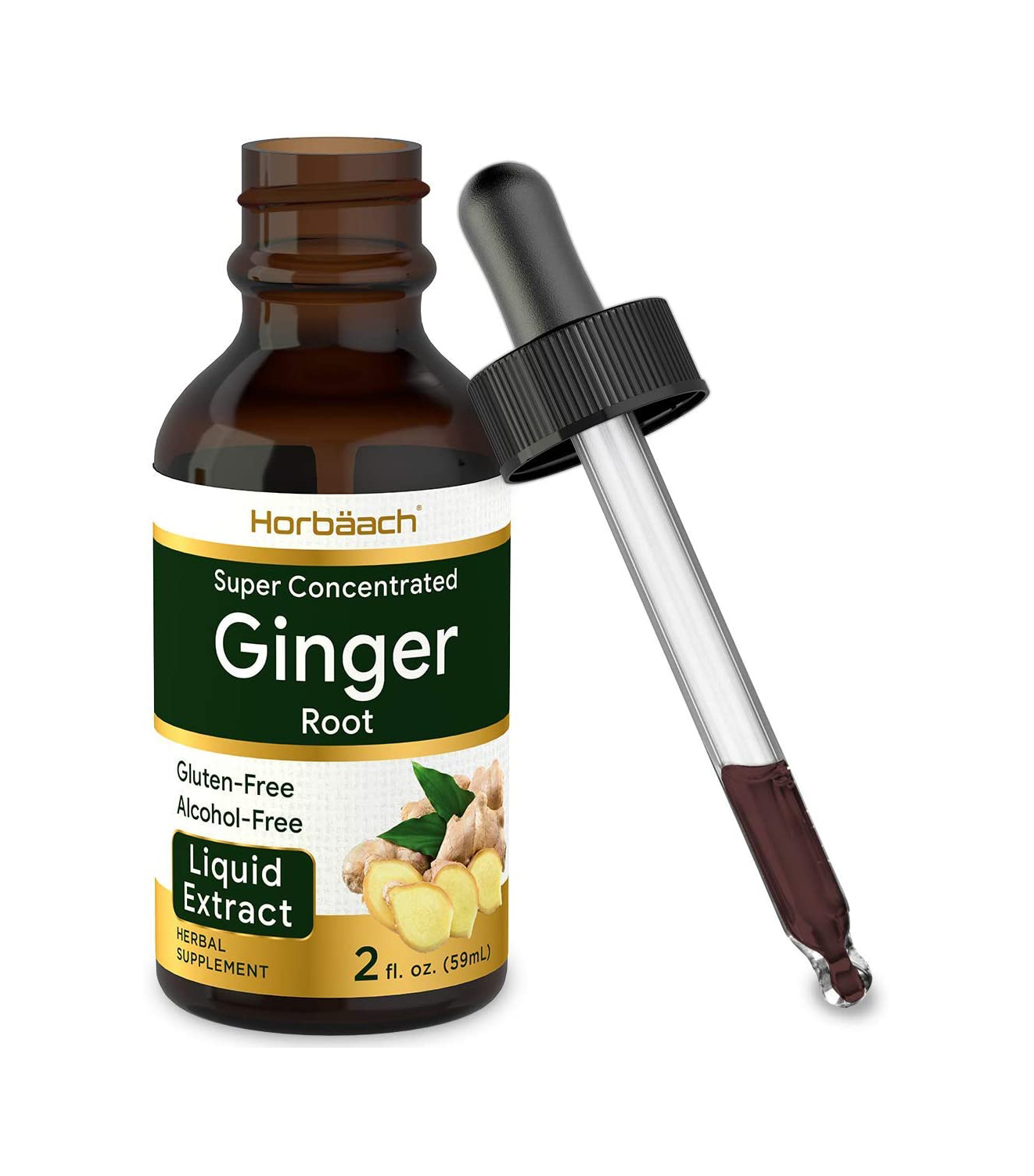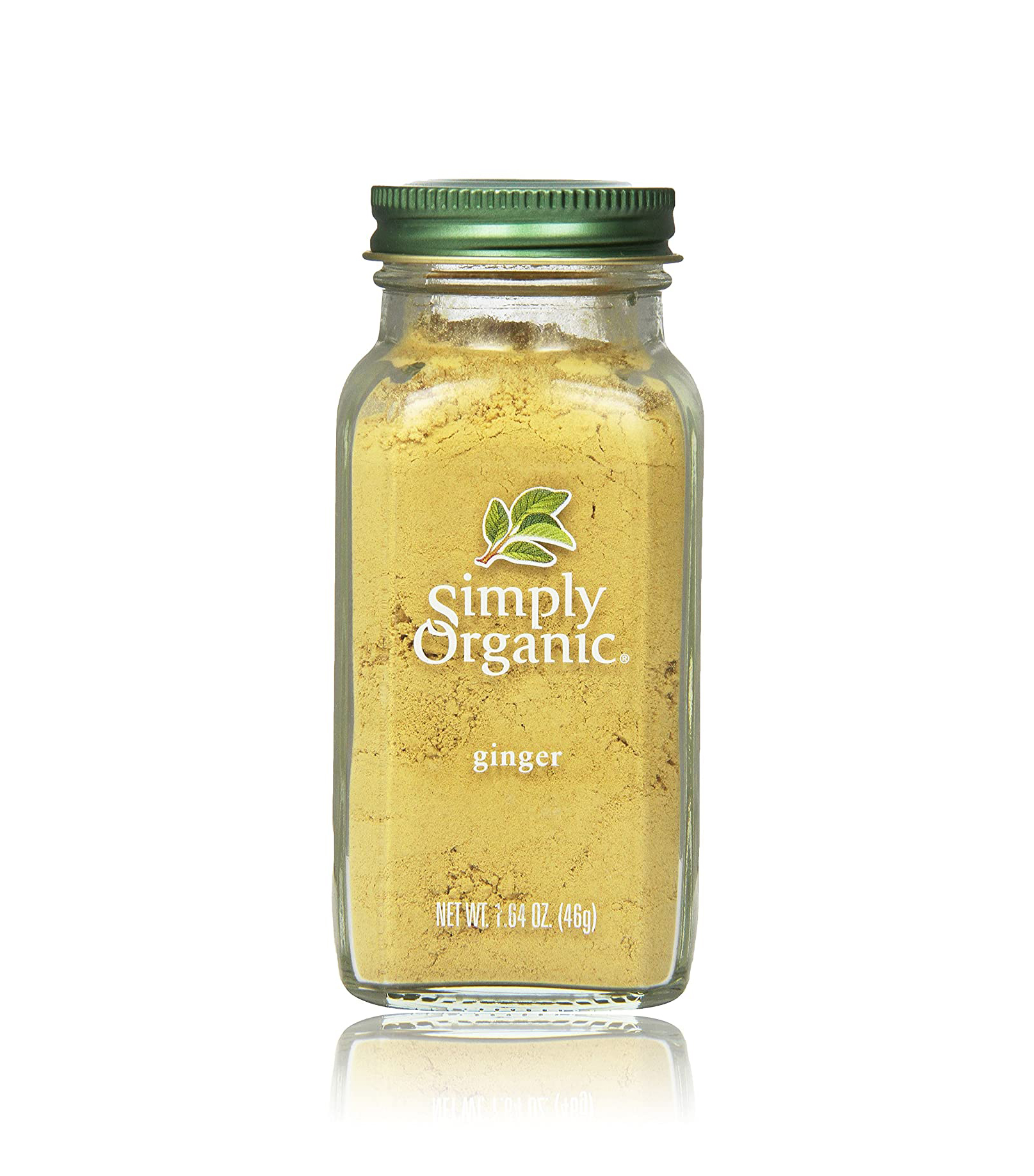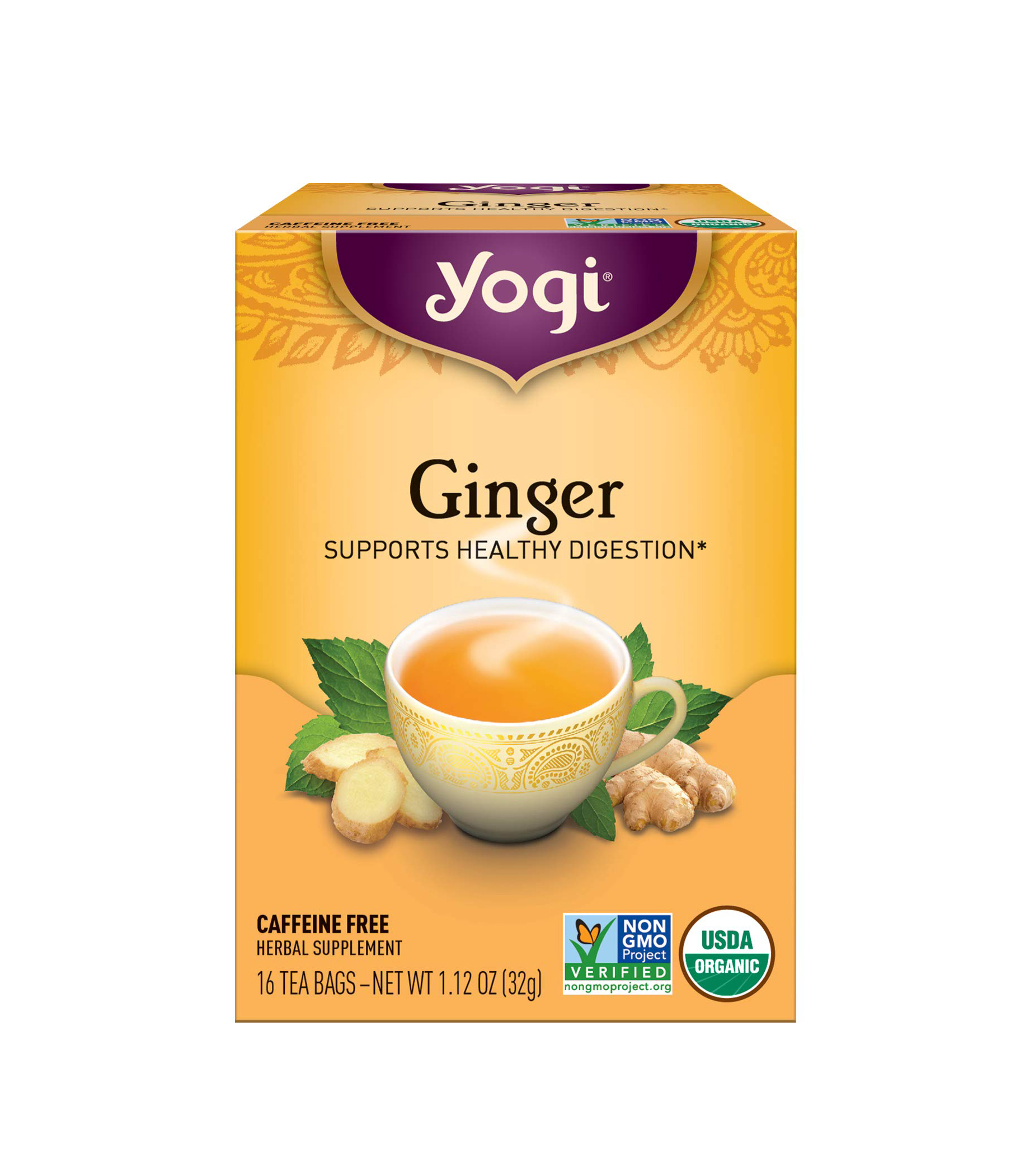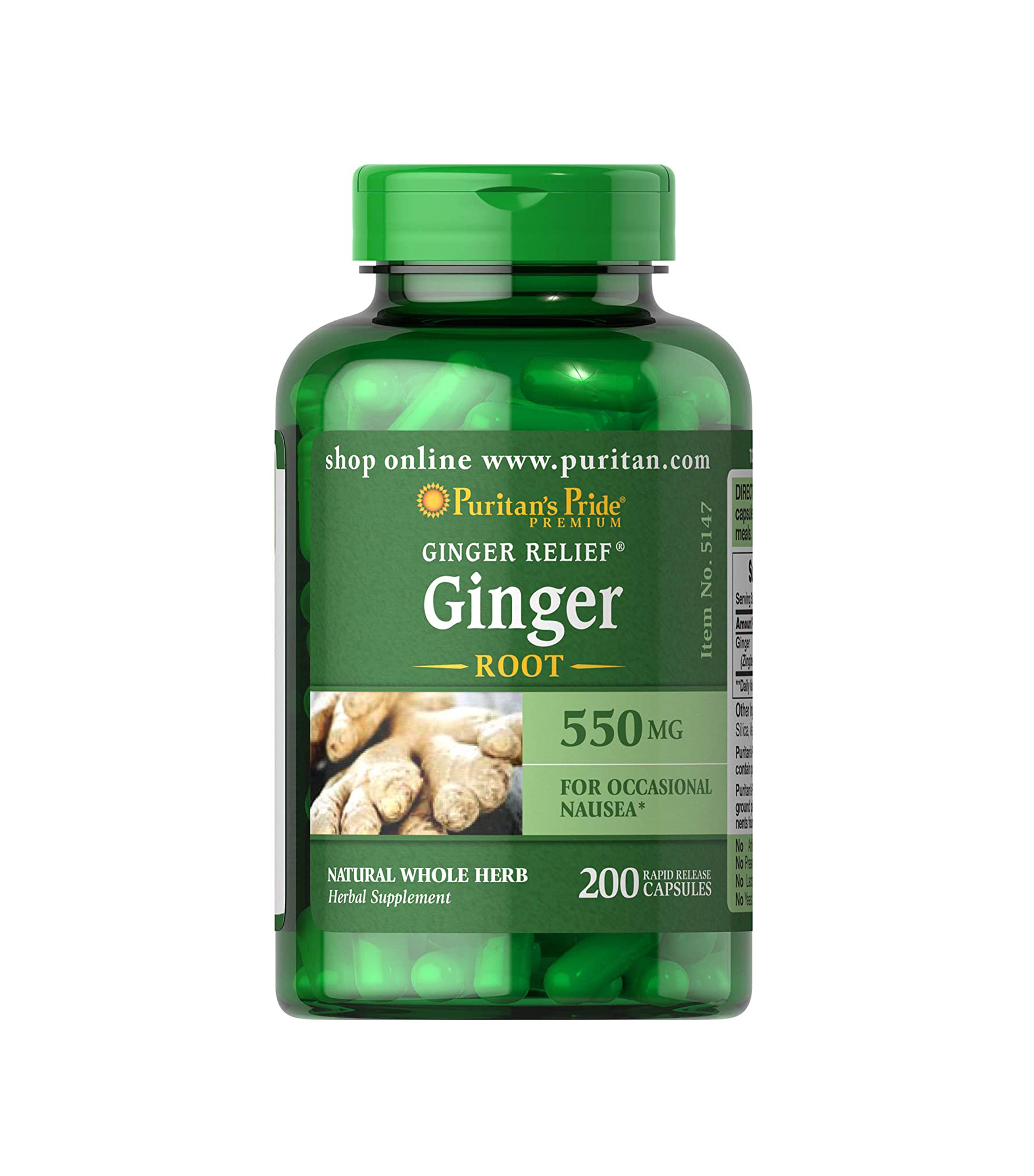Here Are All the Reasons You Should Eat More Ginger
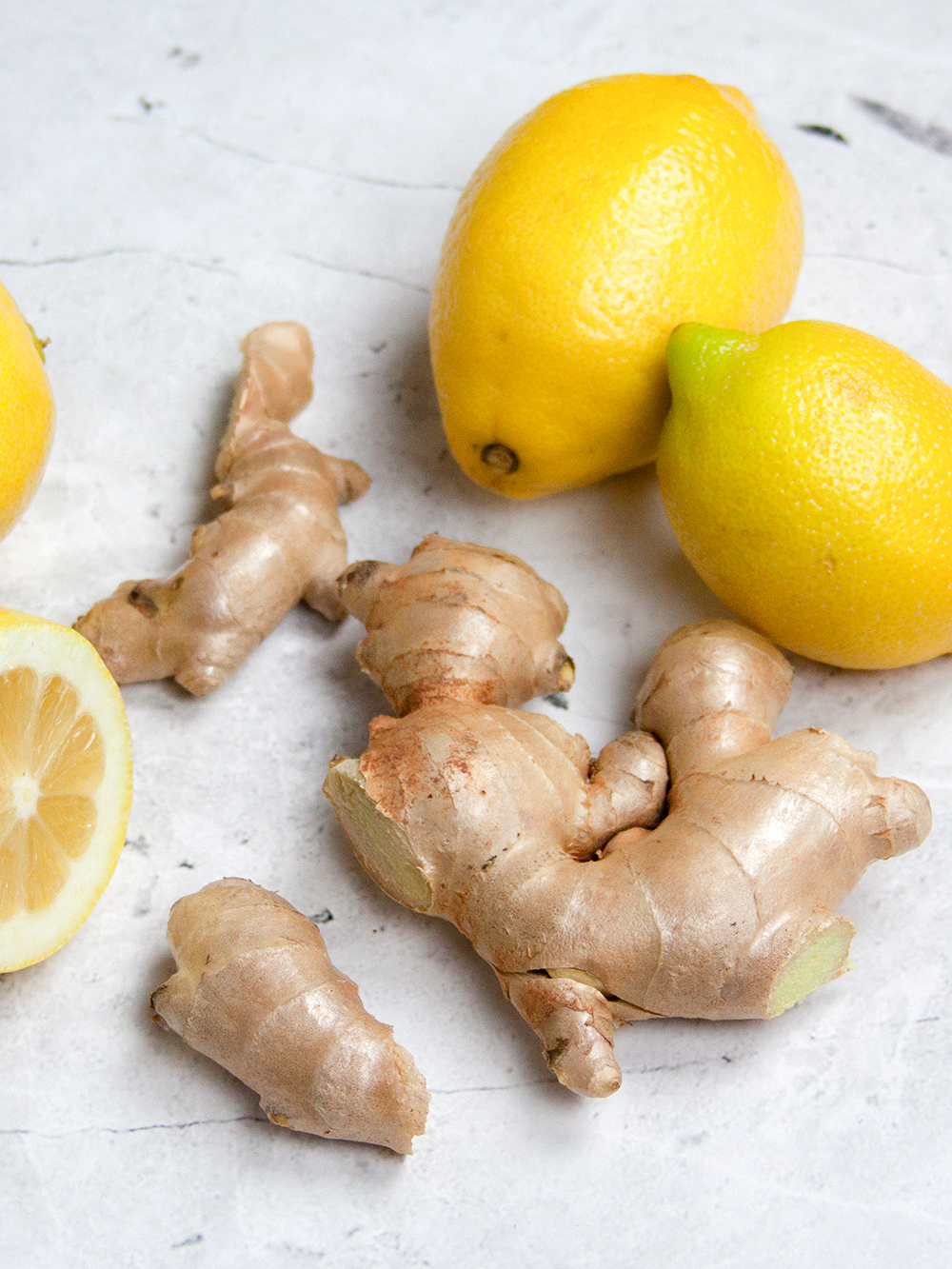
When it comes to natural remedies, ginger is a very powerful ingredient. There's a reason it's featured in many tinctures, supplements, teas, and health foods—the benefits of ginger can have an amazing effect on your whole body. Plus, it's helpful that it can be easily found at the grocery store.
"The ginger plant or Zingiber officinale is a flowering plant that has thick tuberous rhizomes (underground stems and roots) that are widely used in both a culinary and medicinal context," explains Jessie Lucking, a health coach at Parsley Health. "The rhizome is the part of the plant that most of us are familiar with and is referred to as ginger root or ginger. Ginger has a warm, pungent, and peppery flavor and has been used in a multitude of traditional and modern recipes and in herbal medicine throughout history."
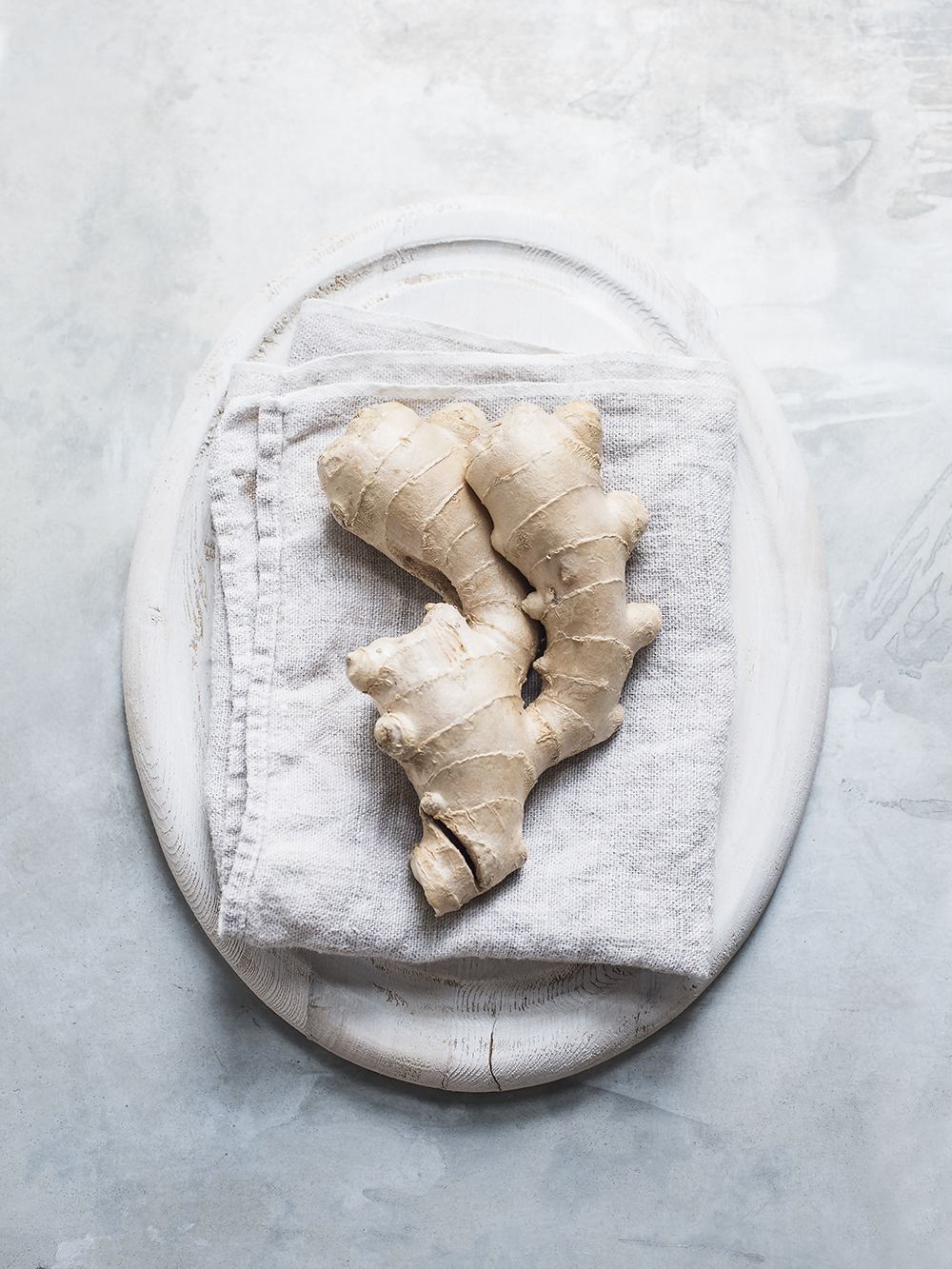
To take advantage of the benefits of ginger, you can consume it in a variety of ways. "It is available in fresh, dried, pickled, powdered, candied, crystalized, liquid extract, or ground form," says registered dietitian nutritionist, Maya Feller, MS, RD, CDN. "Ginger is delicious and I suggest finding the way you like to consume it. Ginger in its ground form can be a quick and simple flavor boost that can easily be added to dishes, while fresh ginger adds a wonderful flavor to hot teas and soups and can elevate any dish. Powdered ginger also has a stronger flavor than fresh ginger, so be sure to use less when substituting or the flavor may be overpowering."
So what form is better for you? Feller says that the degree of processing does alter the levels of bioactive components, but in whatever form, ginger still has its benefits. "Ground ginger has less gingerol than raw ginger, but more of other powerful bioactives such as shogal," she says. "While there are some differences between fresh and powdered ginger, choose the form that is most convenient for your lifestyle. Powdered ginger does not have any less beneficial health effect because of its level of processing. If you are looking to consume more ginger for its medicinal benefits, a capsule may be the easiest way to do so." If you do decide to go with a supplement, make sure it's third-party verified, free from unwanted additives, and that the only active ingredient is ginger or ginger root.
Lucking says that ginger is generally considered to be safe and can be consumed by most people on a daily basis in the original form of fresh ginger root—about the size of your thumb. "If you are taking it in powder or capsule form, adults should not consume more than 4 grams of ginger daily and pregnant women should not consume more than 1 gram per day," she adds. "If you are taking ginger for a therapeutic effect, we would always recommend speaking with your healthcare provider first as there are certain health contraindications to be mindful of with ginger. The form of ginger, as well as the dosage, will vary depending upon the intended effect."
In some cases, you might want to be careful about taking ginger in supplement form or for therapeutic benefits. "Anyone who is taking blood-thinning medication should avoid ginger supplements, as there is a potential interaction to reverse the effects of the medication," Feller says. "Anyone who is taking medication to reduce blood sugars or medication for high blood pressure should check with their doctor before starting any supplement regime." This can apply to you if you have a heart condition, diabetes, kidney stones, gallstones, or undergoing chemotherapy. Check with your doctor first and foremost before you start consuming ginger for health benefits.
Take a look at some of the said health benefits below.
1. It Can Help With Inflammation
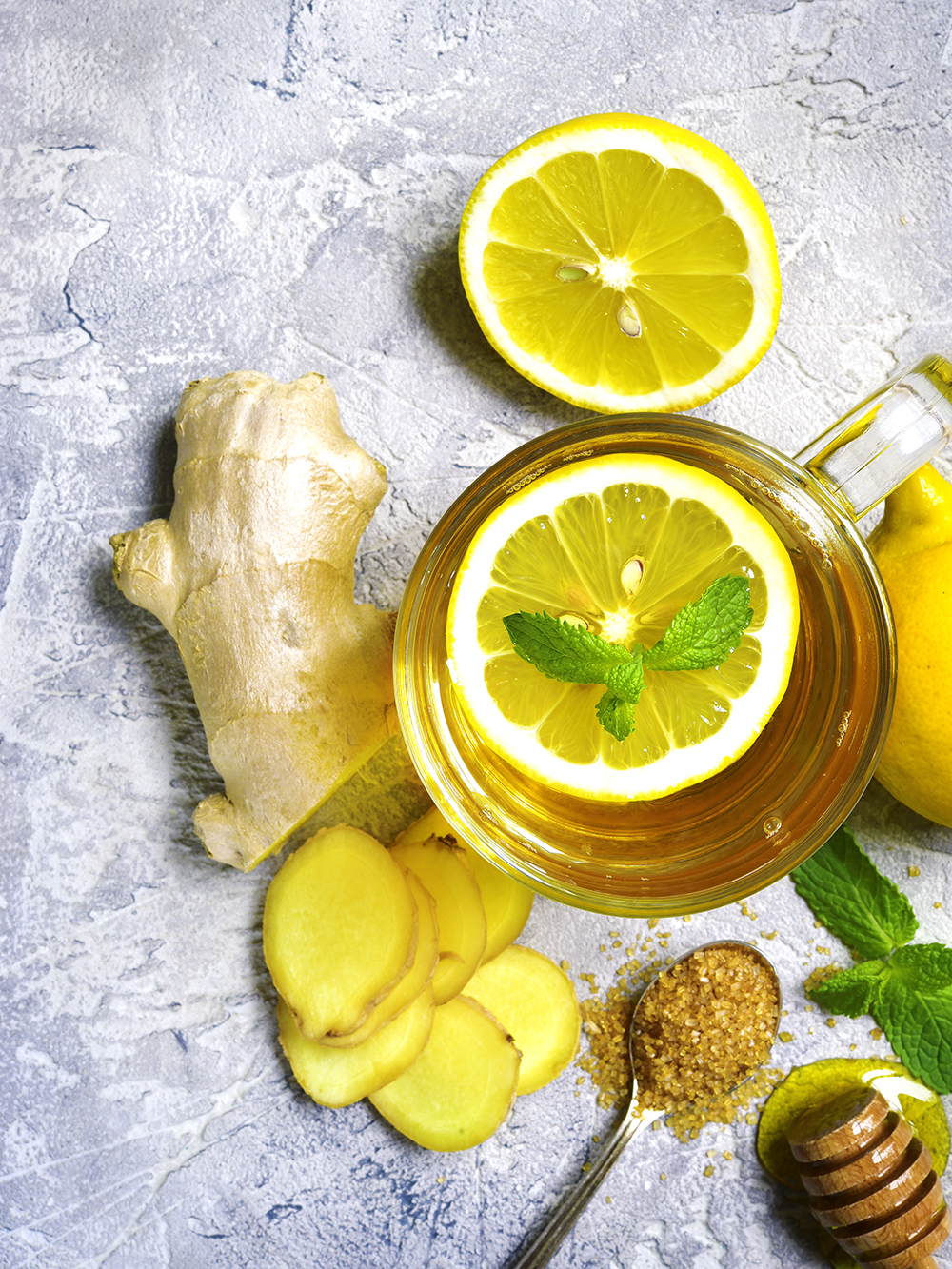
"Ginger contains gingerol, which is a compound of ginger that lowers inflammation," says registered dietitian Alana Kessler, MS, RDN. "When the body is inflamed, it can lead to all different kinds of systemic issues. Ginger is a great natural way to help the body stay in balance."
2. It Contains Antioxidants
"Studies have shown that the bioactive compounds found in ginger have high antioxidant activity," Feller says. "Dried ginger has the highest antioxidant activity of many forms of ginger. Ginger extract stimulates antioxidant enzymes and has the ability to reduce reactive oxygen species (ROS) and lipid peroxidation—both of which cause cellular damage. Overproduction of ROS is thought to be a cause of many diseases. The bioactive compounds in ginger have also been shown to increase intracellular levels of glutathione, also known as the powerful antioxidant."
3. It Can Help Treat Nausea
You can use ginger to deal with any queasiness. "Ginger is effective at reducing nausea caused by indigestion, motion sickness, chemotherapy, and pregnancy-related morning sickness," Lucking says. "Ginger's antiemetic (anti-nausea) properties act peripherally, within the gastrointestinal tract, by increasing the gastric tone and motility due to anticholinergic agents (these block receptors and inhibit transmission from the vestibular sensors to the vomiting center) and antiserotonergic agents (reducing effects of serotonin) actions. This combination of functions illustrates the widely accepted ability of ginger to relieve symptoms of gastrointestinal disorders, including nausea, which is often associated with decreased gastric motility and inability to fully empty the stomach."
4. It Can Fight Off Infection
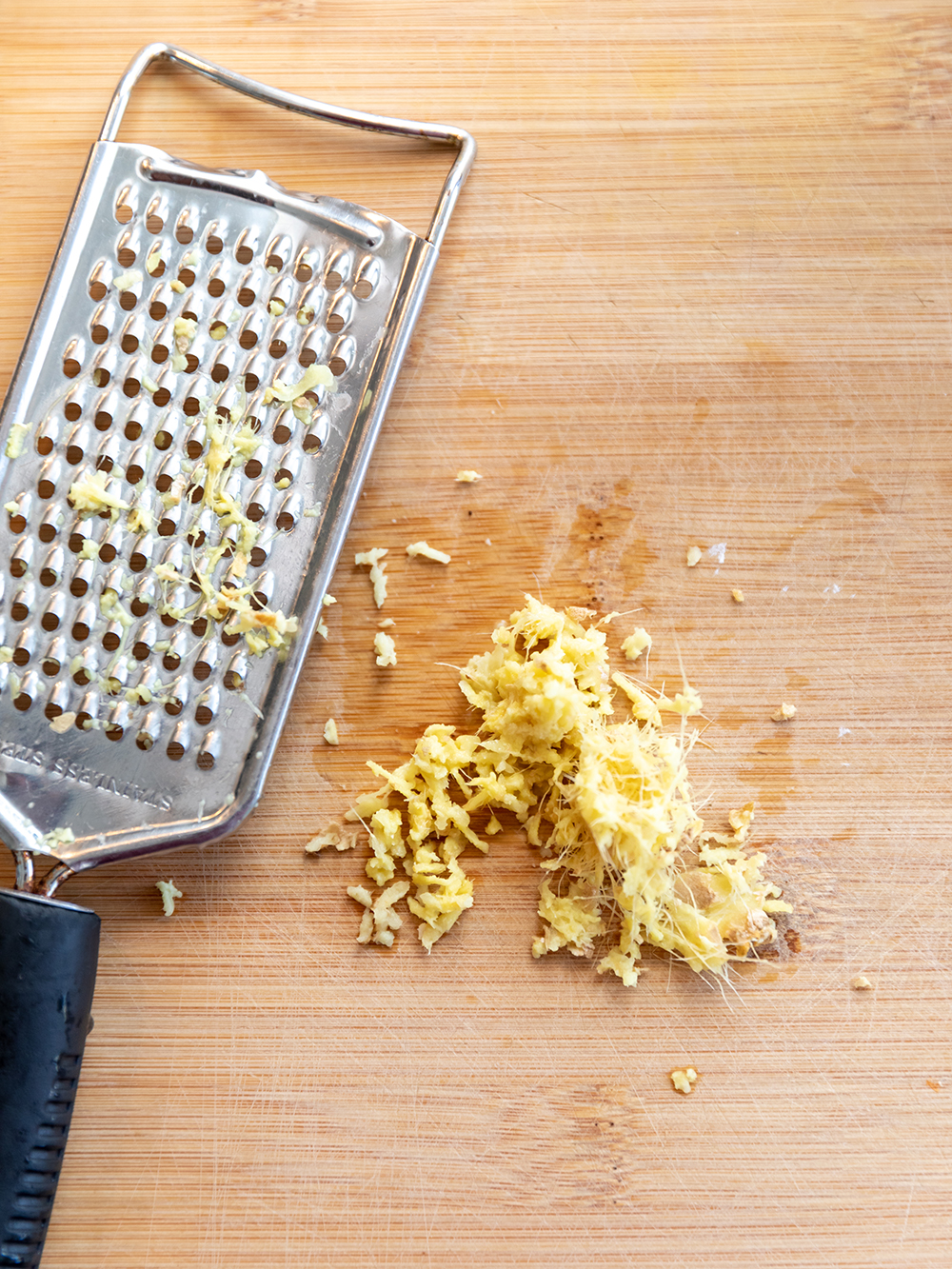
"Ginger has been shown to have a higher antibacterial effect than certain antibiotics as well as antiviral properties, particularly against respiratory viruses," Lucking explains. Ginger has shown antimicrobial activity against E. coli, salmonella typhi, and bacillus subtilis and anti-viral activity against RSV. The ginger rhizome contains several constituents which have antibacterial and antifungal effects, primarily gingerol and shagelol, that allow for these benefits against infections."
5. It Has Anti-Diabetic Properties
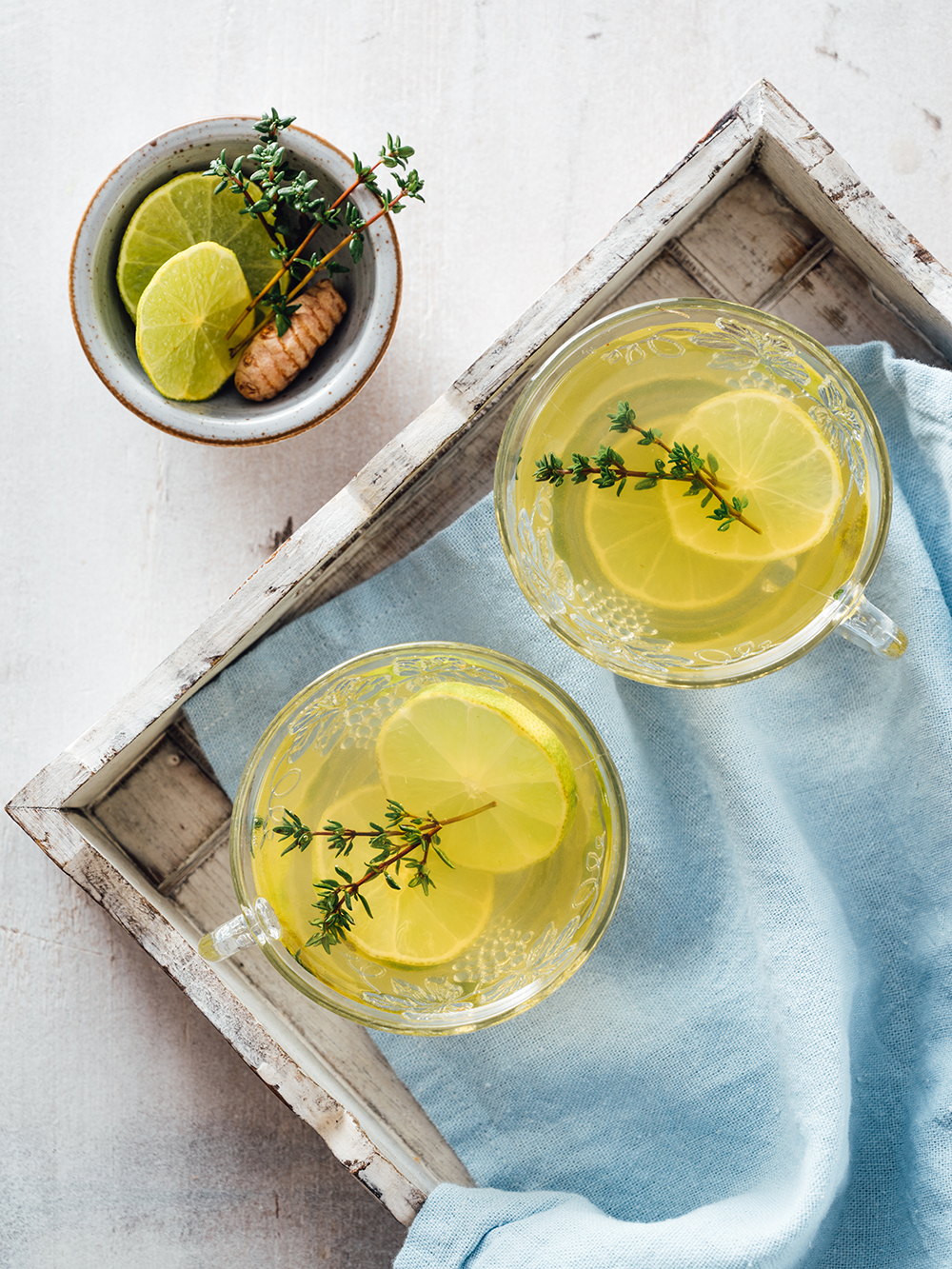
"Ginger may have the ability to reduce plasma glucose levels, HbA1c, insulin, triglycerides, and total cholesterol in patients with Type-2 diabetes," Feller says. "Ginger treatment also improved insulin sensitivity in rats with metabolic syndrome. A study demonstrated ginger ingestion decreased insulin levels, LDL-C and total cholesterol levels and increased insulin sensitivity in patients with T2DM."
6. It Can Help With Digestion
Lucking says that a key factor in digestive concerns is low stomach acid and inadequate breaking down of food after chewing and swallowing and delayed emptying of the stomach. Ginger can help calm the gastrointestinal lining and help empty the stomach. "It is also a potent carminative, or substance that promotes the elimination of intestinal gas and an intestinal spasmolytic, a substance that relaxes and soothes the intestinal tract, and decreases what we experience as gas and digestive discomfort."
7. It Can Boost Metabolism
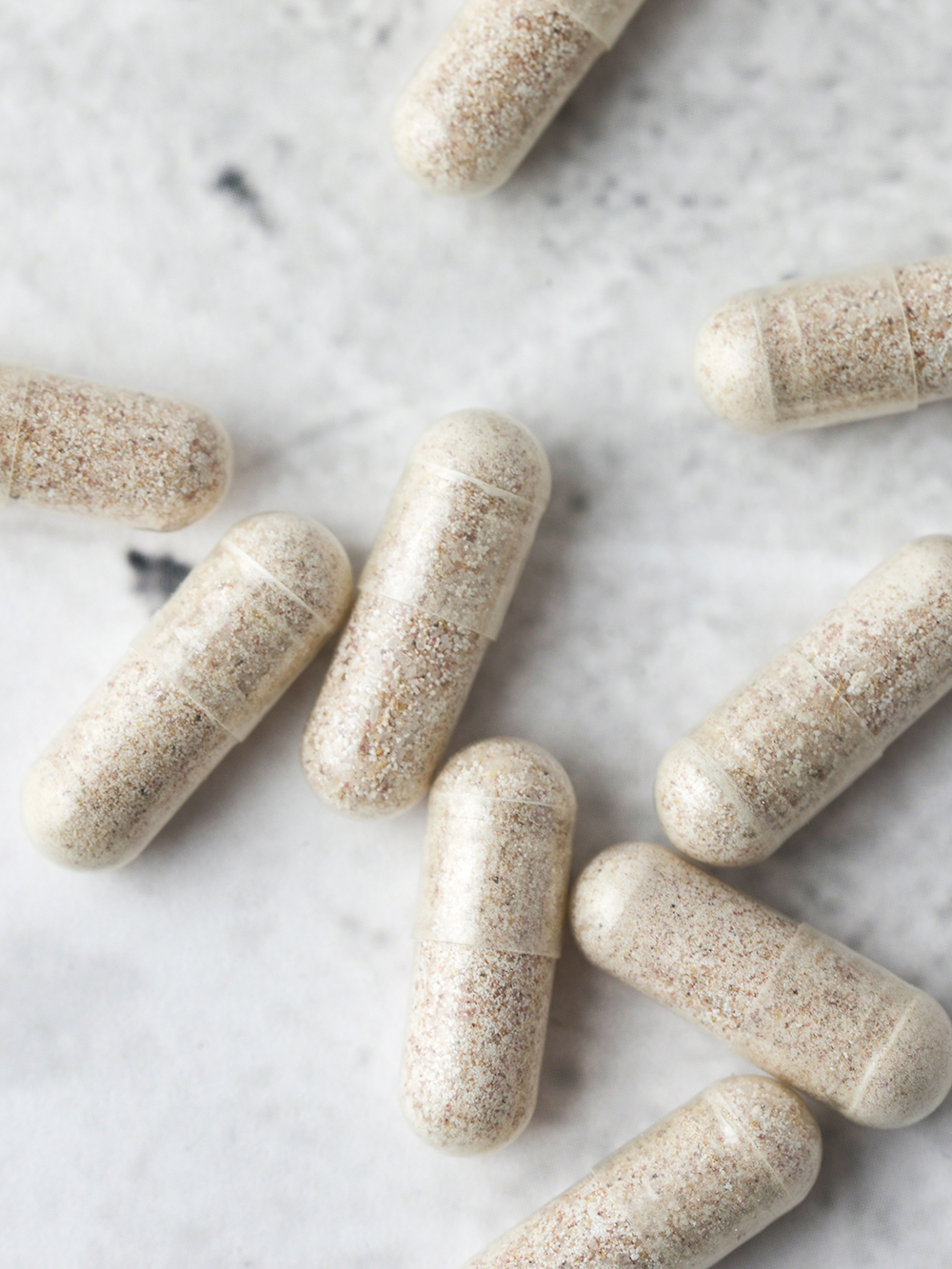
Kessler says it's hypothesized that ginger can help with weight loss because it creates heat in the body. "When the body's heat rises metabolism speeds up and when metabolism speeds up, weight loss can be amplified," she says.
8. It Helps With Pain Relief
"Ginger can reduce the pain of osteoarthritis and rheumatism and other inflammatory conditions," Lucking says. "Ginger contains anti-inflammatory compounds that function in the same way as COX-2 inhibitors (drugs used to treat pain and inflammation). COX inhibitors shut off inflammation and directly cause suppression of cartilage cell growth and natural repair of cartilage growth. Ginger has also been shown to inhibit arachidonate 5-lipoxygenase, an inflammatory component in rheumatoid arthritis, diseases of chronic inflammation, heart disease, and inflammatory joint pain."
9. It Can Relieve Muscle Soreness
Since ginger has anti-inflammatory properties, consuming it after exercise might relieve muscle and connective tissue pain. Kessler cites a University of Miami study that found ginger extract can impact cells similar to NSAIDS (nonsteroidal anti-inflammatory drugs) and increase the mobility of arthritic joints.
10. It's Neuroprotective

"Some investigations have revealed ginger positively affects memory function and displays anti-neuroinflammatory function which may reduce the risk of developing neurodegenerative diseases such as Alzheimer's and Parkinson's disease. Further research is still needed, however, this is promising," Feller says.
11. It Might Help Prevent Cardiovascular Disease
"Ginger has been identified as supportive in various aspects of cardiovascular disease, in part due to its more recently studied anti-inflammatory, antioxidant, antiplatelet, and hypolipidemic effects," Lucking explains. "Consumption of ginger can inhibit platelet aggregation (formation of clots), enhance fibrinolytic activity (the dissolving of clots), significantly lower triglycerides and LDL while increasing HDL cholesterol. Dried ginger powder has also been shown to reduce arterial plaque in several promising trials."
12. It Can Help Treat Period Pain
Kessler says you can use ginger to naturally help with period pain. In fact, 500 milligrams three times a day can provide relief similar to ibuprofen. You can also drink ginger tea to help with cramps. Lucking adds that it's been proven that pain reduction was greater when ginger was taken up to two days before your period and for the first three days of menstruation, versus taking it just for the first three days.
13. It May Be Cancer-Preventative
Lucking says it may be cancer preventative due to the high levels of gingerol, shogaol, and paradols. "It is thought that these key ginger compounds may have anti-cancer properties related to high levels of antioxidant content, the ability to increase anti-tumor activity, and cell invasion inhibition, and a role in the regulation of overall inflammation contributing to certain types of cancers," she explains.
Next: 10 Practically Medicinal Foods That Help Ease Stomach Pain
This article is provided for informational purposes only and is not intended to be used in the place of advice of your physician or other medical professionals. You should always consult with your doctor or healthcare provider first with any health-related questions.
Sarah is lifestyle writer and editor with over 10 years of experience covering health and wellness, interior design, food, beauty, and tech. Born and raised in Los Angeles, she attended New York University and lived in New York for 12 years before returning to L.A. in 2019. In addition to her work atBest Knockoff Luxury Clothing , she held editor roles at Apartment Therapy, Real Simple, House Beautiful, Elle Decor, and The Bump (sister site of The Knot). She has a passion for health and wellness, but she especially loves writing about mental health. Her self-care routine consists of five things: a good workout, “me” time on the regular, an intriguing book/podcast/playlist to unwind after a long day, naps, and decorating her home.
